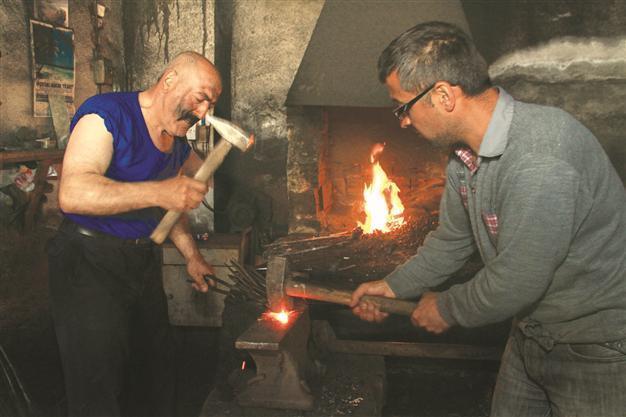Factory growth loses further pace on domestic challenges in Turkey
ISTANBUL/LONDON

‘Manufacturers stepped up purchasing activity and continued to raise employment in April, in a signal that the underlying health of the sector remained positive,’ the HSBC survey found out. AA photo
Turkey’s manufacturing sector expanded for a ninth straight month in April, but the pace of growth slowed for the second successive month due to modest gains in output and new orders, survey results from Markit Economics have revealed.
The headline HSBC Turkey Manufacturing Purchasing Managers’ Index dropped to 51.1 from 51.7 in March, which has been the lowest point since August 2013. A PMI number above 50 suggests expansion in the manufacturing sector.
“This partly reflected the weak domestic demand following the elections, as new export business has increased at the strongest rate in over three years,” read the statement released for the announcement of the figures.
The new orders’ growth eased to its weakest level since last August, largely due to the subdued demand from domestic markets amid the elections. However, export orders grew at the strongest rate since February 2011.
Expected slowdownConsequently, manufacturing production growth slowed to its weakest pace since July 2013. Despite the weakness, purchasing activity was stepped up and employment grew, indicating that the underlying conditions in the sector were positive.
“Manufacturers stepped up purchasing activity and continued to raise employment in April, in a signal that the underlying health of the sector remained positive,” the HSBC said. Employment has grown steadily since June 2009, but the latest increase was the smallest since August last year.
“After a decent Q1, manufacturing growth in Turkey is starting to slow. This is to be expected, as domestic demand growth is cooling on the back of a weaker currency and tighter monetary conditions,” HSBC Economist Melis Metiner was quoted in the statement.
This is a healthy adjustment: slower domestic demand growth this year will help cool inflationary pressures in the economy and result in a smaller current account deficit,” she also said.
Input price inflation eased to a 6-month low, while output prices grew at the weakest pace thus far this year.
The survey also revealed “inflationary pressures remained strong, but abated further. Input price inflation eased further from January’s 34-month record to a six-month low, while output prices increased at the slowest rate of the year so far.”
